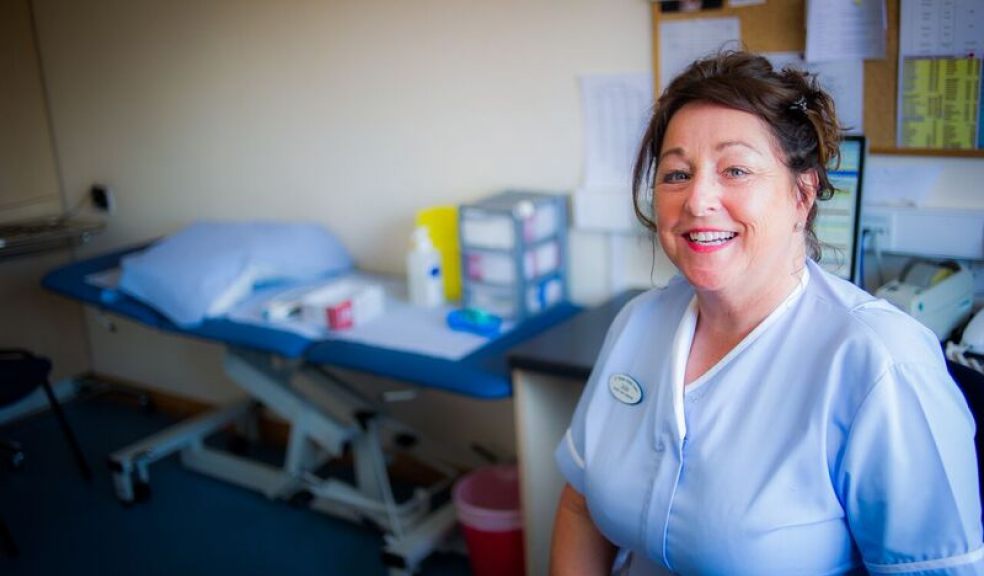
Exeter healthcare worker says research changed her life
An Exeter healthcare worker says her life has been positively transformed since she took part herself in a clinical research study into high blood pressure treatment.
As well as pro-actively identifying patients of St Thomas Health Centre who were eligible to take part in the DASHER clinical research study, Health Care Assistant Julie Main has also discovered first-hand the benefits of taking part in this trial for her own health.
Julie, aged 57, said: “I cannot tell you how amazing this study has been for me. I have had the most thorough check-up which I would otherwise have not had and since I have received treatment as a participant of the DASHER study my blood pressure is now under control.
“Before I was treated for hypertension I was weary, irritable and felt uptight. I couldn’t quite put my finger on why I felt unwell but it seemed to creep up on me over a period of time.
From being on this study myself and supporting the delivery of this study at our GP surgery I have learnt so much about the importance of blood pressure to my health and wellbeing. I genuinely feel like a new person. This really has been a life changing experience.”
Julie, who has worked at the practice in Cowick Street for 13 years, had not previously been involved in supporting recruitment of people to clinical studies before DASHER.
More than one in four adults in the UK have high blood pressure, although many won’t realise it (NHS Choices source). Blood pressure is recorded with two numbers – the systolic pressure (higher number) is the peak pressure in the body’s arteries when the heart pumps blood around the body and the diastolic pressure (lower number) is the pressure in the body’s arteries when the heart is relaxed.
If untreated high blood pressure increases risk of serious health problems such as heart attacks and strokes. DASHER study participants receive nurse-led treatment of their hypertension which includes 10 visits over an 18-week period in which the treatment may be altered depending on the patient’s response to it and how well the treatment is working.
DASHER, which is now closed to recruitment, was co-sponsored by the Royal Devon & Exeter NHS Foundation Trust and the University of Exeter Medical School. It was funded by Gawthorn Cardiac Trust (UK).
Dr Andrew Jordan, DASHER Principal Investigator and Clinical Research Fellow at Exeter Clinical Research Facility, said: “Previous research has shown that less than half of people treated reach their blood pressure targets and that this proportion can be increased using clinics that follow a clear treatment plan. Furthermore, early reduction of blood pressure in these patients improves long term health.
“We aim to show that an innovative treatment plan to reduce blood pressure quickly in newly-diagnosed patients with moderate-severe hypertension is safe and works well. We are also investigating the causes of treatment-resistance and hope that this will help blood pressure treatment to be tailored to individual patients’ needs in the future.”
Julie is one of 4,774 people recruited onto clinical research studies through their GP practice in 2016-17 in the South West region. Over 24,800 people took part in research trials in this year across Devon, Somerset, Cornwall and the Isles of Scilly as part of the National Institute for Health Research (NIHR) Clinical Research South West Peninsula.
The NIHR Clinical Research Network South West is celebrating International Clinical Trials Day on 20 May 2017 with activities and public engagement events in hospitals, GP practices and community healthcare settings to raise awareness about the benefits and opportunities for taking part in and supporting health research.
To find out more about getting involved in research visit: www.iamresearch.co.uk and to find out what clinical research is taking place in your area: www.ukctg.nihr.ac.uk














